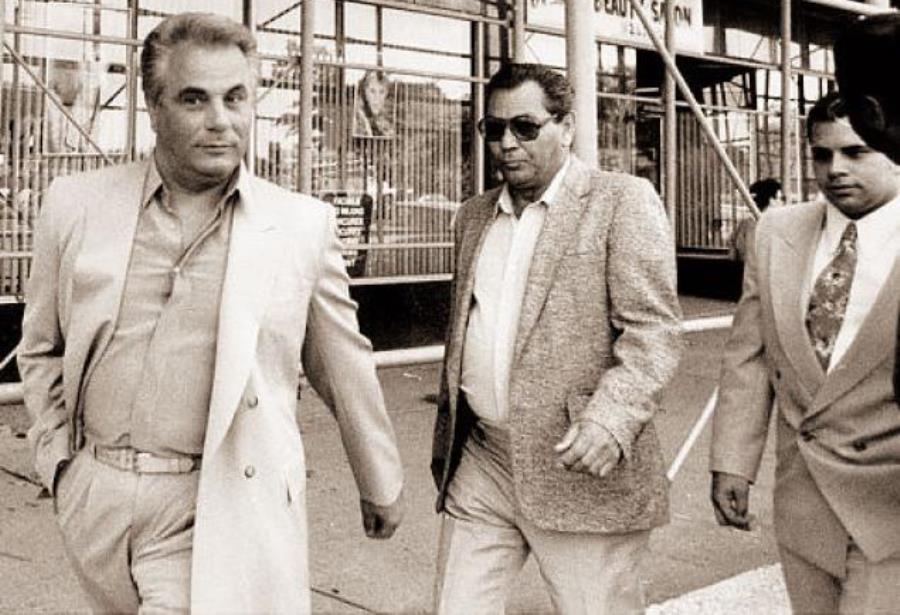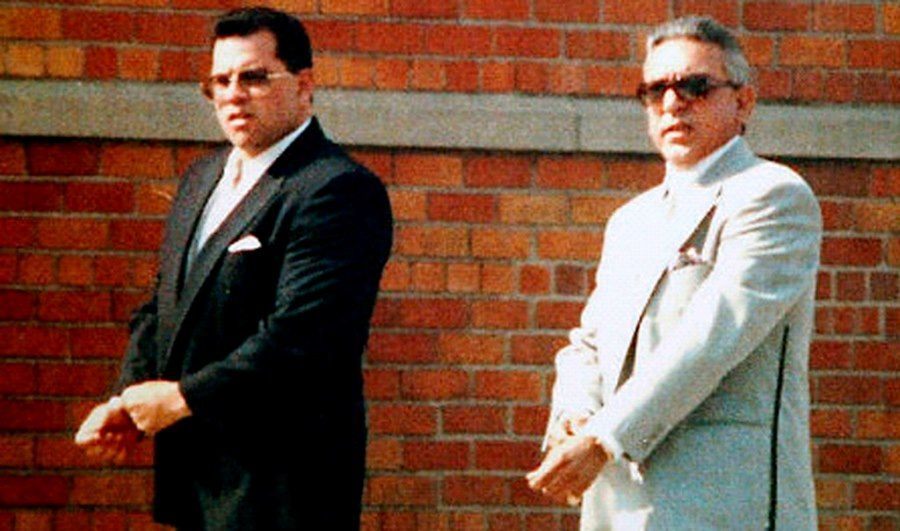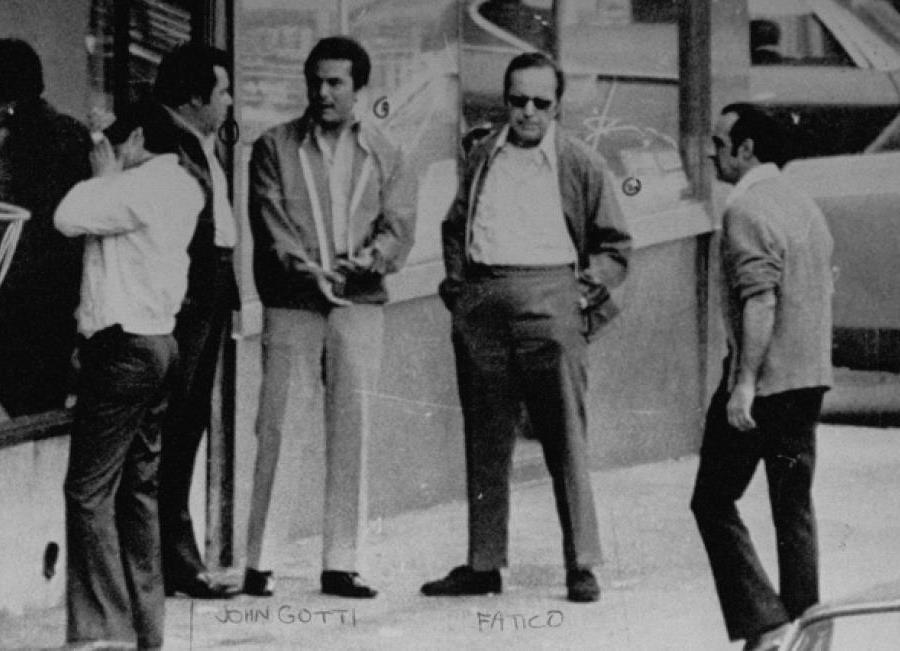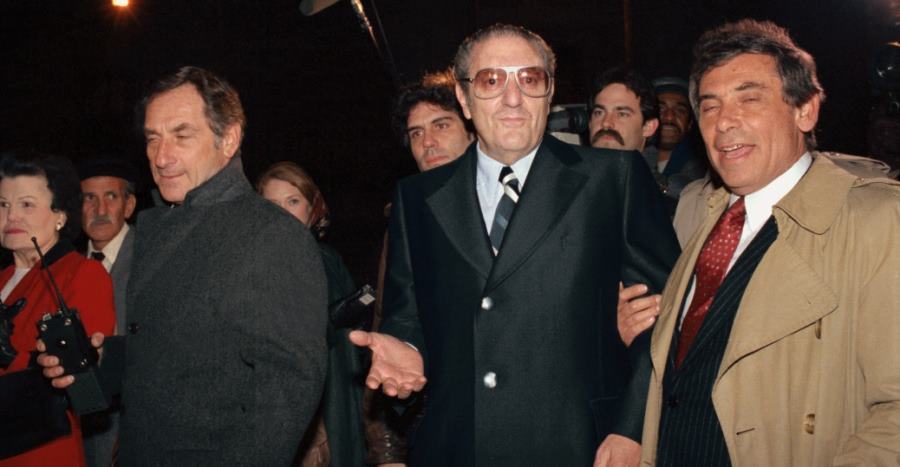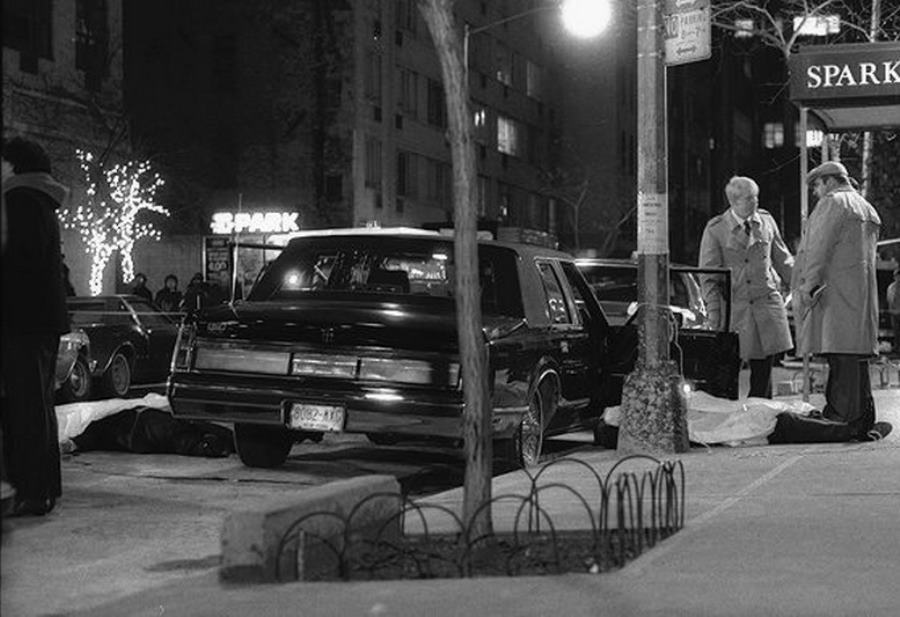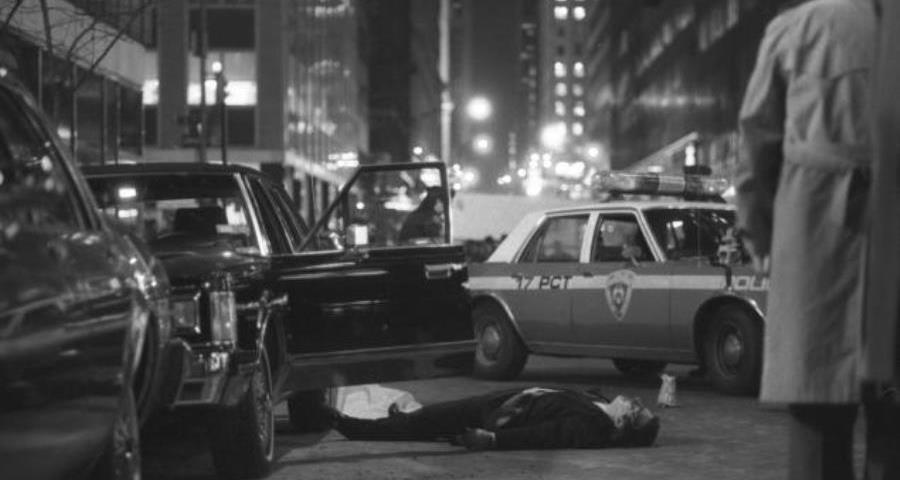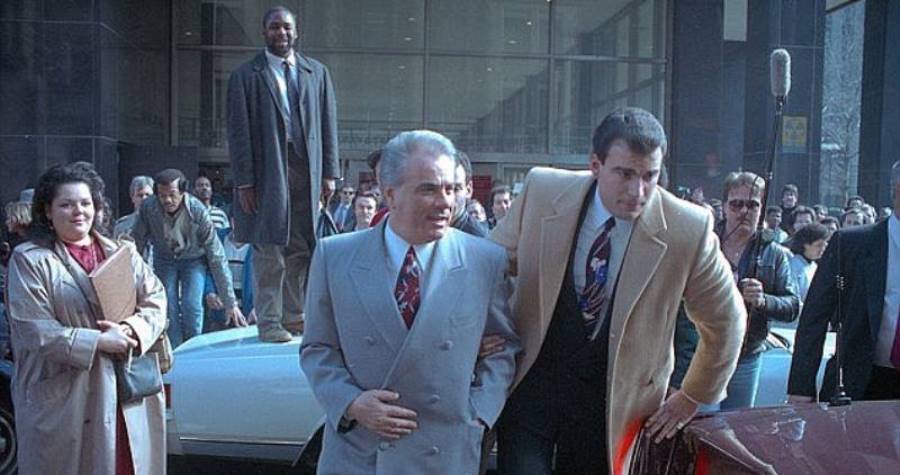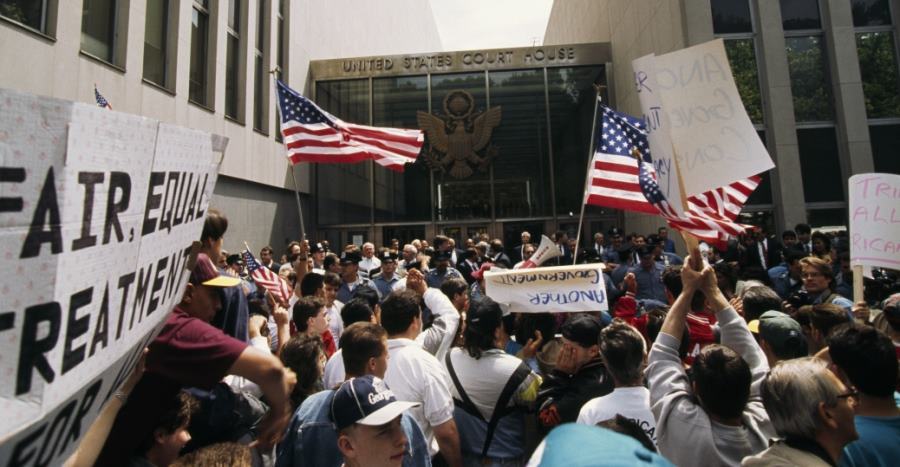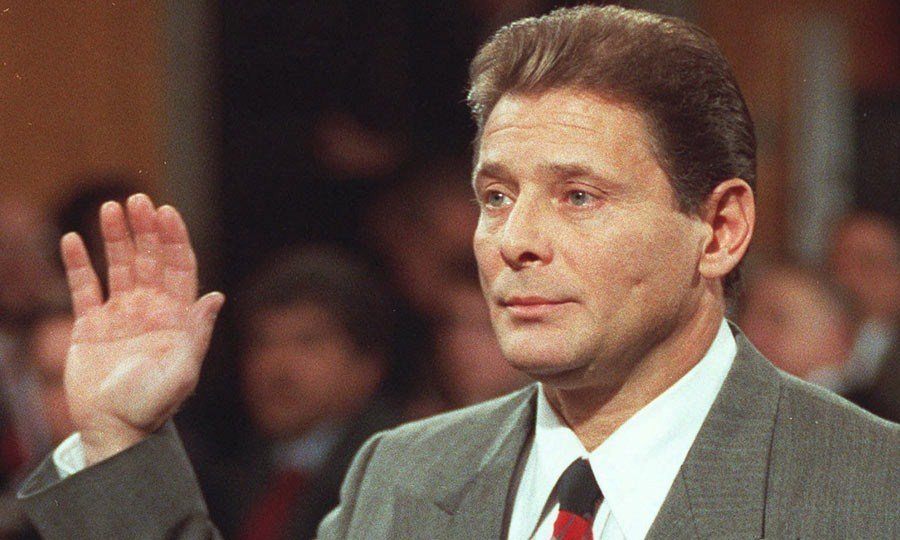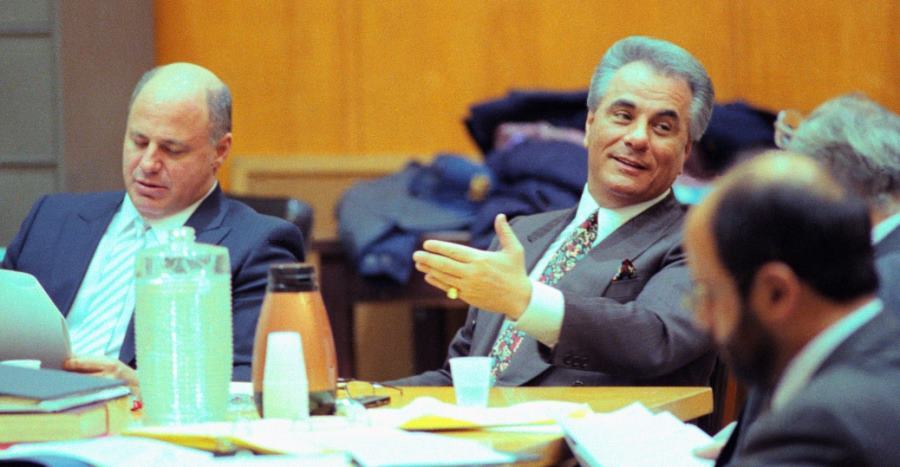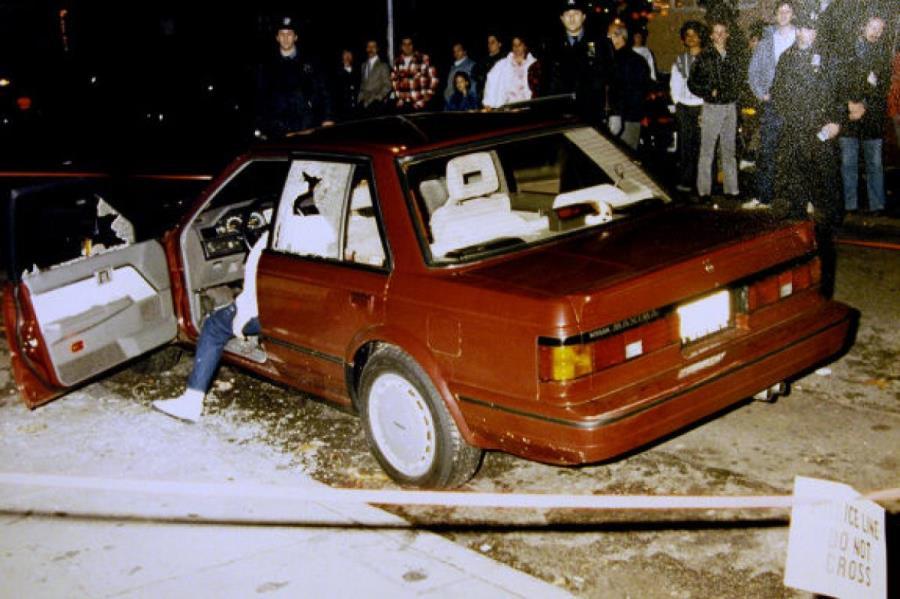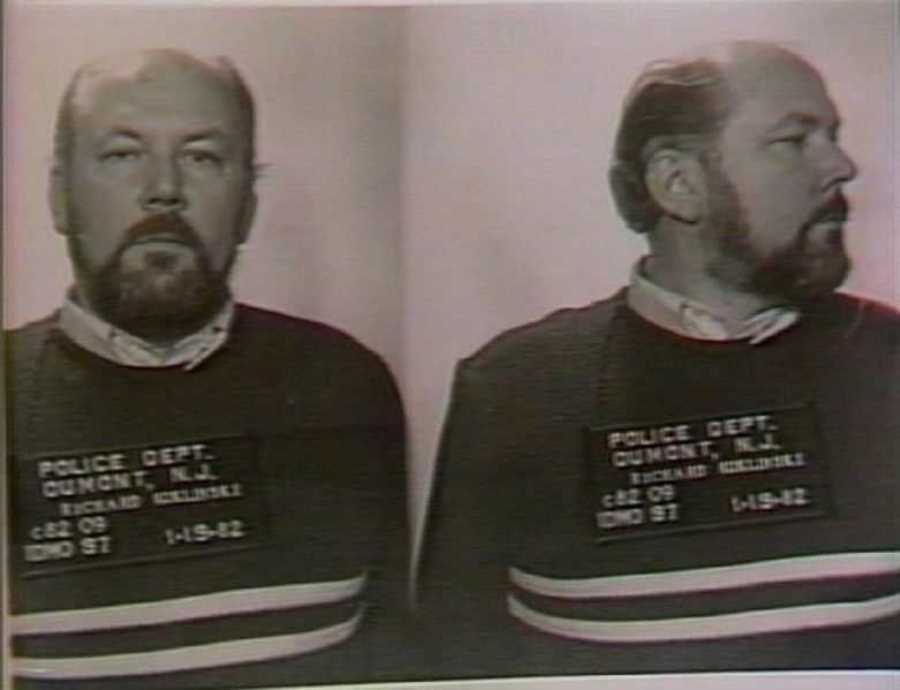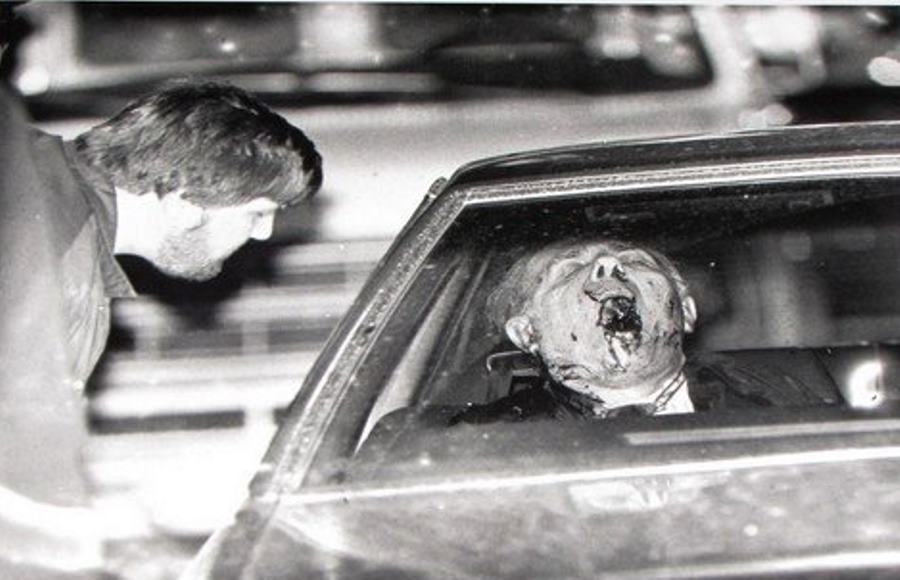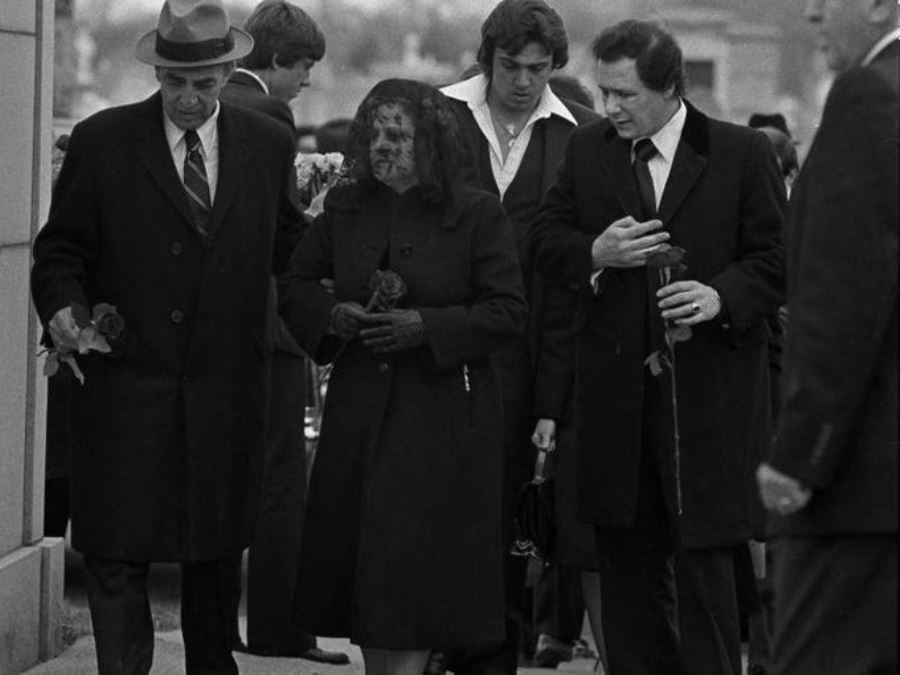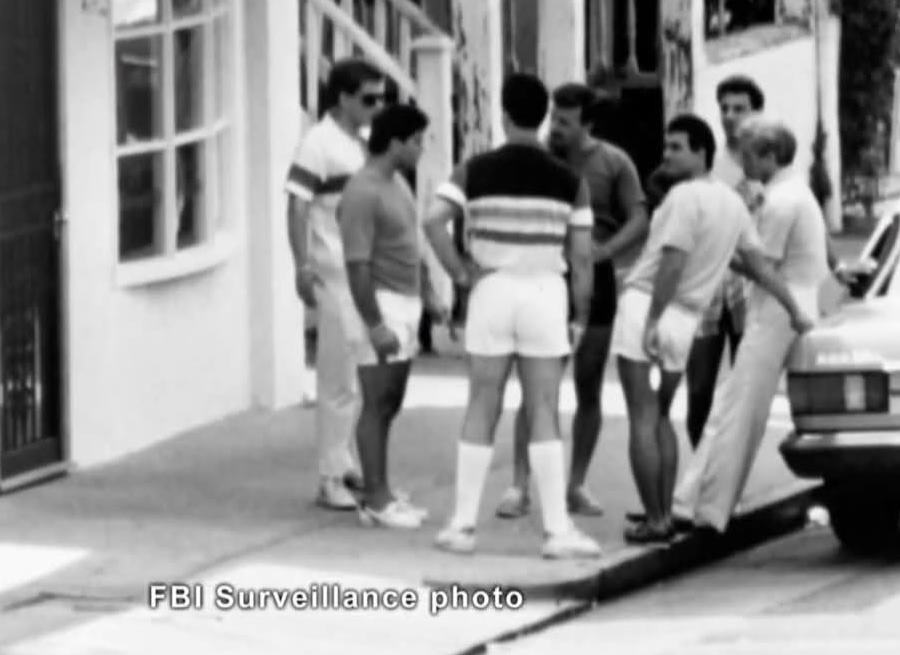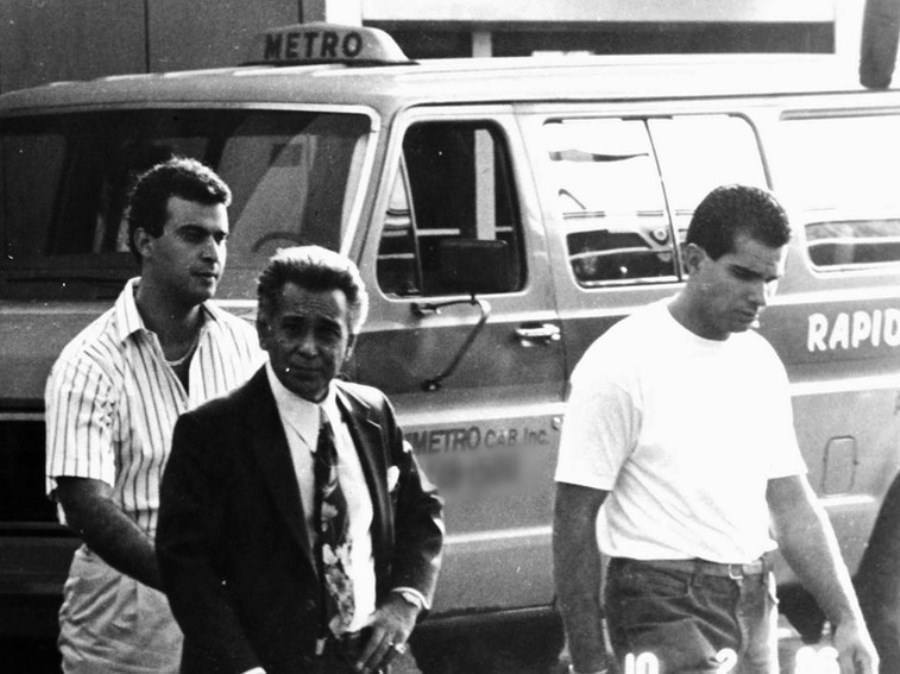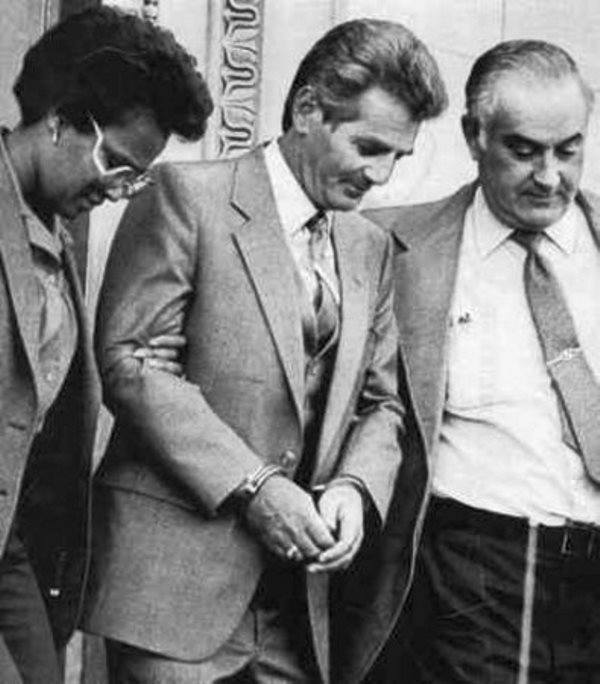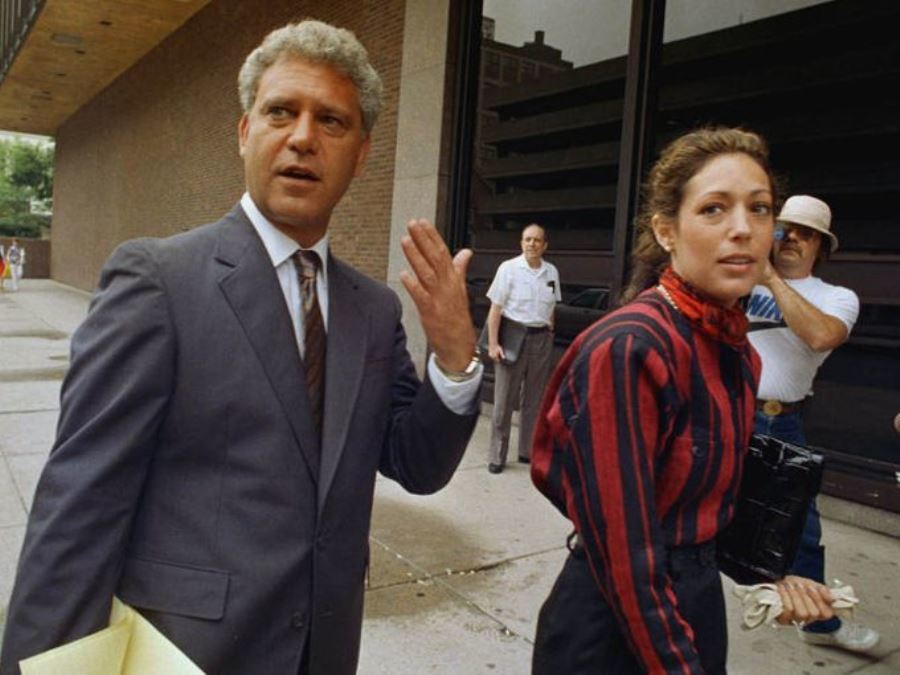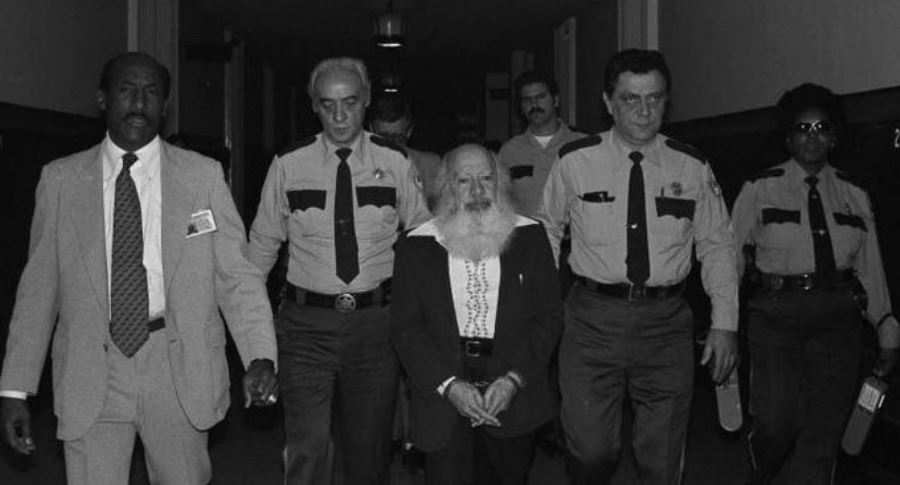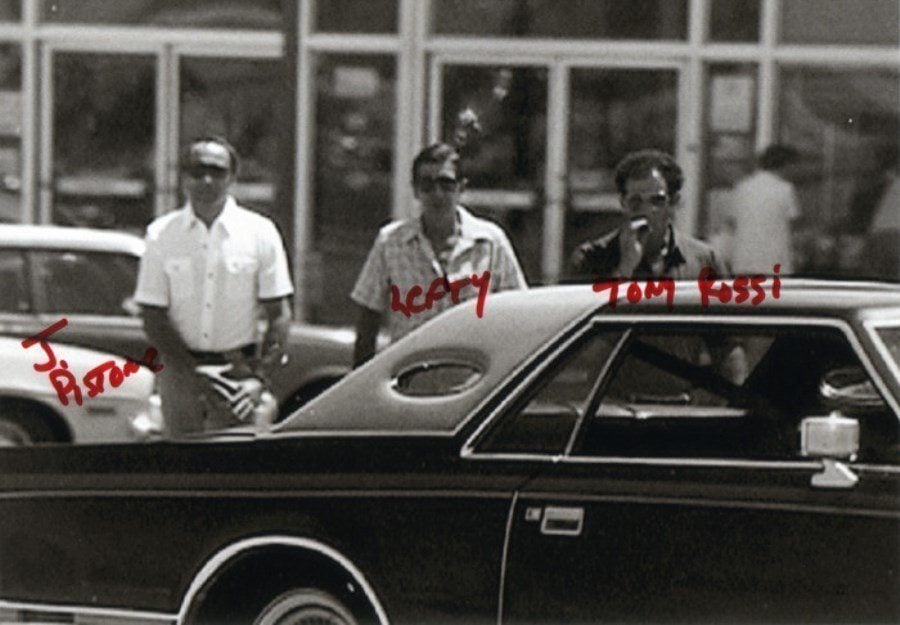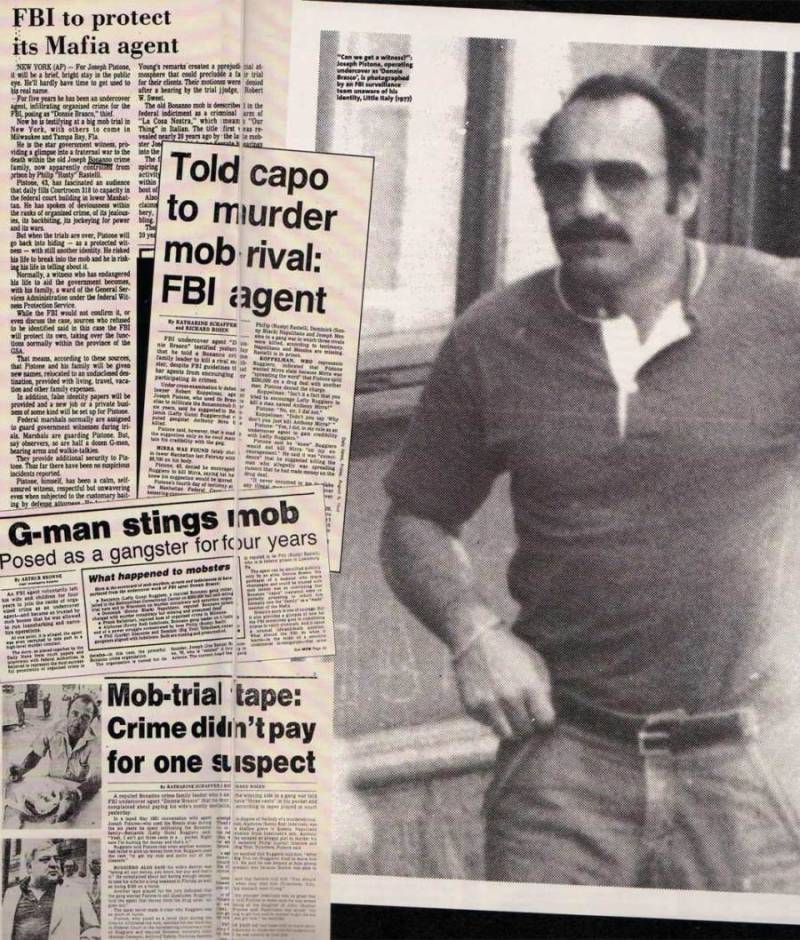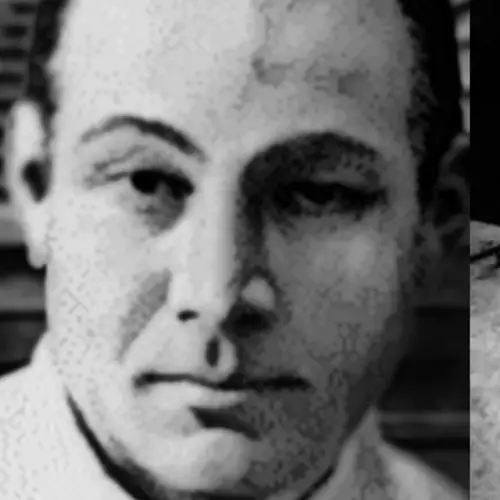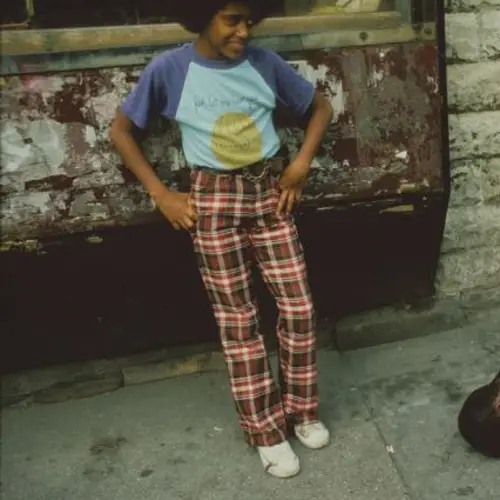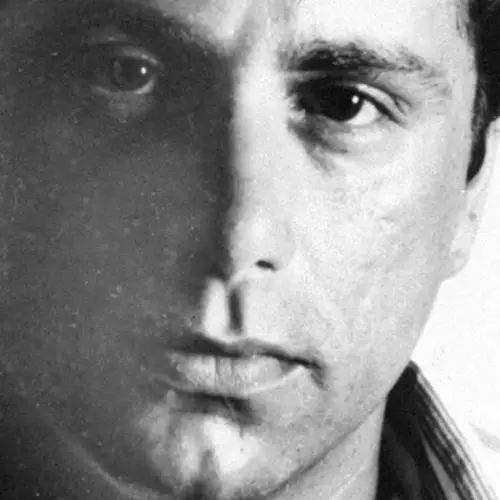1 of 28
Nobody embodies the 1980s mafia quite like John Gotti, a member of the Gambino crime family. While his cohorts actively avoided attention, Gotti became known as "The Dapper Don" for his taste in expensive clothes and personality with the media.Five Families of New York City
2 of 28
Walking alongside John Gotti's son (left) is Charles Carneglia. He became John Gotti's most trusted hit man after helping dissolve a neighbor of Gotti's in a vat of acid, allegedly putting the victim's finger into another mobster's soup.Daily Mail
3 of 28
John Gotti and other members of the Gambino family, photographed by FBI surveillance outside of the Bergin Hunt and Fish Club in Ozone Park, Queens.Daily News
4 of 28
The one man that stood in Gotti's way was Paul Castellano, the head of the Gambino family. An old school don, he strictly forbade his family from selling narcotics.HISTORY
5 of 28
The release of government surveillance tapes in December 1985 revealed associates of Gotti discussing the drug trade, which Gotti determined would give Castellano enough motivation to murder him.
On the night of December 16, 1985, a hit team waited for Castellano and his bodyguard outside of Sparks Steak House in Midtown Manhattan.Mental Floss
6 of 28
With Gotti observing from across the street, the hitmen shot Castellano as he exited his car in front of the restaurant. Two weeks later, Gotti was made the new boss of the Gambino family.Pinterest
7 of 28
Gotti was brought to trial on three separate occasions in the late 1980s but was acquitted each time, thanks in part to intimidating both witnesses and jury members. This earned him the nickname of "The Teflon Don," because no charges seemed to stick against him.Daily Mail
8 of 28
Even in his final days before incarceration, Gotti was a celebrity. Here, supporters await Gotti as he comes out of a federal courthouse in Brooklyn.Daily Mail
9 of 28
The ultimate undoing of John Gotti would come at the hands of Salvatore "Sammy the Bull" Gravano. After hearing surveillance tapes of John Gotti disparaging Gravano as well as pinning several murders on him, Gravano became a state witness against Gotti.Wikimedia Commons 10 of 28
After evading prosecution for most of the 1980s, Gotti was found guilty in 1992 on racketeering and murder charges after Sammy Gravano testified against him.
Sentenced to life in prison, Gotti spent the remainder of his life in effective solitary confinement and died of cancer in June 2002.HISTORY 11 of 28
Those that didn't go to prison often ended up dead. After becoming head of the Bonanno family, Carmine Galante commanded the largest drug-trafficking operation among the Five Families.
However, his cornering of the narcotics market drew the ire of other New York crime families, resulting in his assassination at Joe and Mary's Italian-American Restaurant in Bushwick, Brooklyn. Everything2Stroke
12 of 28
With such frequent violence, bystanders also suffered the mafia's wrath. In a case of mistaken identity, Nicholas Guido (above) was killed on Christmas 1986 when he was confused for the would-be conspirator of a mafioso's murder.Daily News
13 of 28
As violence escalated and more mafia members became informants, paranoia set in. In what is regarded as John Gotti's last hit, Edward Garofalo (above) was gunned down in Dyker Heights, Brooklyn because he was suspected of cooperating with government officials.Daily News
14 of 28
Of all the mafia's hit men, no one was as infamous as Richard Kuklinski. Nicknamed "The Iceman" because he froze victims to conceal their time of death, Kuklinski worked as a contract killer for the New York and New Jersey families in the 1970s and 1980s.
After being found guilty of two murders in March 1988, Kuklinski would later admit his involvement in over 200 for-hire killings.Wikimedia Commons 15 of 28
Known as the 'Oddfather' by the press, Vincent Gigante was the head of the Genovese family in the 1980s. Gigante had feigned insanity since the 1960s in an elaborate ruse to avoid government prosecution. His most public act of fakery involved wandering Greenwich Village in his bathrobe.HISTORY
16 of 28
Mafia violence and activities weren't just confined to New York, however. In 1976, over 36 bombs went off in Cleveland, Ohio during an escalating war between Irish and Italian crime organizations.
In the above photo, the founder of the Celtic Club -- an Irish gang -- was assassinated using a car bomb after he left a dentist's appointment.
Cleveland.com
17 of 28
Other mafia strongholds in North America included Philadelphia and Chicago. In 1980, the head of the Philadelphia family, Angelo "The Gentle Don" Bruno (above), was murdered outside of his home in South Philadelphia.
Things did not end well for his conspirators, including consigliere Antonio Caponigro (aka Tony Bananas), who was soon murdered by the New York families for not seeking their permission for the assassination.Mental Floss 18 of 28
The family Of Angelo Bruno, moments after his body was interred.Wikiwand
19 of 28
Members of the Philadelphia mob, photographed by FBI surveillance as they congregate outside of a social club.Wikiwand
20 of 28
Following the death of Angelo Bruno, Nicky Scarfo (center) became boss of the Philadelphia family in 1981. Known for his ruthless behavior, Scarfo also helped the families of New York dominate business in Atlantic City.Pinterest
21 of 28
Mafiosos weren't the only ones to get caught in federal investigations. Michael Matthews, the then Mayor of Atlantic City, was tried and convicted for working with the Philadelphia mob in extorting businesses and city officials.philly.com
22 of 28
Philadelphia councilman Leland Beloff was also tried and found guilty in 1987 for working with the Philadelphia mob to extort bribes from developers.Courier-Post
23 of 28
Standing only 5'1" and weighing just 136 pounds, Harry "The Hunchback" Riccobene was nonetheless a respected elder of the mafia in Philadelphia. A mobster since the Prohibition era, Riccobene was finally brought to justice when he was convicted of a murder during the internal Philadelphia mafia conflict of the early 1980s.Courier-Post
24 of 28
Not all prosecutions ended so well, however. In neighboring New Jersey, after an almost two-year long federal trial culminated in acquittals for 20 members of the New Jersey Lucchese family in 1988, defendants and attorneys celebrate the innocent verdict in a Newark bar.Los Angeles Times
25 of 28
Given broad powers under the Racketeer Influenced and Corrupt Organizations Act (RICO), the federal government started to infiltrate the ranks of the Mafia in the late 1970s. The most famous infiltration was by FBI agent Joseph Pistone (left), known as Donnie Brasco while operating undercover in the Bonanno crime family.Wikimedia Commons 26 of 28
As a direct result of Pistone's undercover work, there were over 200 indictments and 100 convictions of mafia members. The Bonnano associates who unwittingly accepted Pistone into the organization also suffered a heavy price: each were executed within a month of the revelation that Donnie Brasco was an FBI agent.
To this day, a $500,000 contract remains open from the mafia for the murder of Joseph Pistone.
Neon Magazine
27 of 28
Leading the charge by law enforcement in New York was Rudolph Giuliani. Speaking as a United States Attorney in Manhattan in 1987, Giuliani described the efforts against organized crime to The New York Times:
"We keep making gains and they keep getting moved backward. If we take back the labor unions, the legitimate businesses, eventually they become just another street gang. Spiritually, psychologically, they've always been just a street gang."HISTORY 28 of 28
Like this gallery?
Share it:
